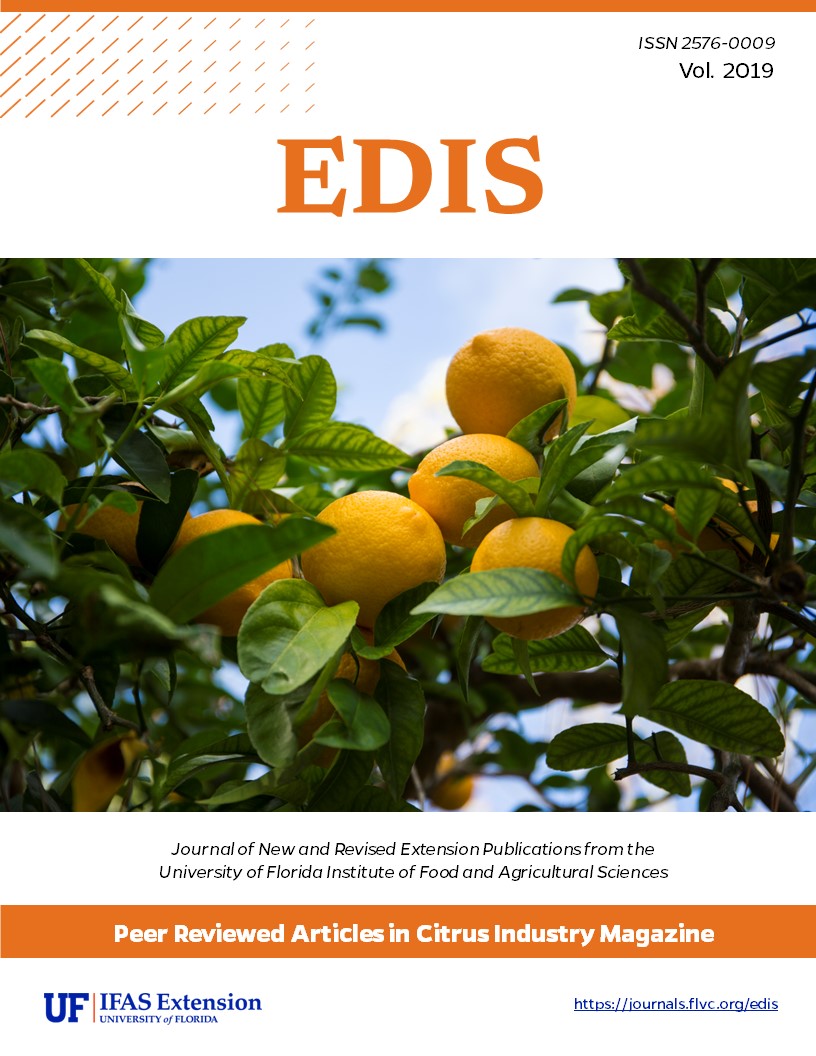Abstract
On December 16, 2019 all commercial motor vehicles (CMV) are mandated to carry ELDs (FMSCA, 2017a). These ELDs will replace paper logs and attach to the trucks’ engines. There, they easily record idle time, driving time, miles driven, vehicle movement, and off and on-duty time; making it easier for law enforcement to check if drivers are compliant with Hours of Service (HOS) rules. Paper logs are easily manipulated and it’s an open secret that drivers may have two types of paper logs: one for law enforcement and another for their records. The Mandate is the DOT’s latest attempt to improve road safety by ensuring that ALL CMV drivers (including those who transport citrus and citrus products) are compliant with HOS rules. Added compliance will increase road safety but will also increase travel time which can have adverse effects for transporting fresh produce. For example, unpredictable loading and unloading times, unexpected traffic, or looking for parking are included in on-duty hours and result in delayed deliveries and increase risk of losing produce. These issues could lead to an increase in costs for long-haul trips, something essential to the citrus industry since fresh fruit and juice originate in few states (California, Florida, and Texas) and are transported regionally. This article discusses the HOS rules and exemptions, as well as the cost of transporting citrus across the country.
References
FMSCA. 2017a. Implementation Timeline. August 31, 2017. Available at https://www.fmcsa.dot.gov/hours-service/elds/implementation-timeline.
FMCSA. 2017b. Summary of Hours of Service Regulations. March 9, 2017. Available at http://www.fmcsa.dot.gov/regulations/hours-service/summary-hours-service-regulations.
FMSCA. 2018. The “Agricultural Commodity” Exception in 49 CFR 395.1(k)(1) to the Hours of Service Regulations. March 2018. Available at https://www.fmcsa.dot.gov/regulations/hours-service/%E2%80%9Cagricultural-commodity%E2%80%9D-exception-49-cfr-3951k1-hours-service-regulations
Roka., F. & Wade, T. (2019) Electronic logging devices (ELDs) mandate and hours of service (HOS) for produce haulers. EDIS-1052, Food and Resource Department, UF/IFAS Extension, Gainesville, FL. Available at https://edis.ifas.ufl.edu/fe1052
Willkie, P. 2019. “Specialty Crops Truck Rate Report.” U.S. Department of Agriculture, Agricultural Marketing Service, Specialty Crops Programs, Market News Division: Volume L Number 38, Washington DC. Available at https://search.ams.usda.gov/mndms/2019/09/FV20190925WTRK.PDF#xml=https://search.ams.usda.gov/mnsearch/hiliteinfo.aspx?i=1&docid=FV20190925WTRK.PDF
Yager, T. 2009. Commercial Motor Vehicle Drivers’ Hours of Service: Background Information. Federal Motor Carrier Safety Administration, MCSAC presentation, December 7, 2009. Available at https://www.slideserve.com/Jims/commercial-motor-vehicle-drivers-hours-of-service.

